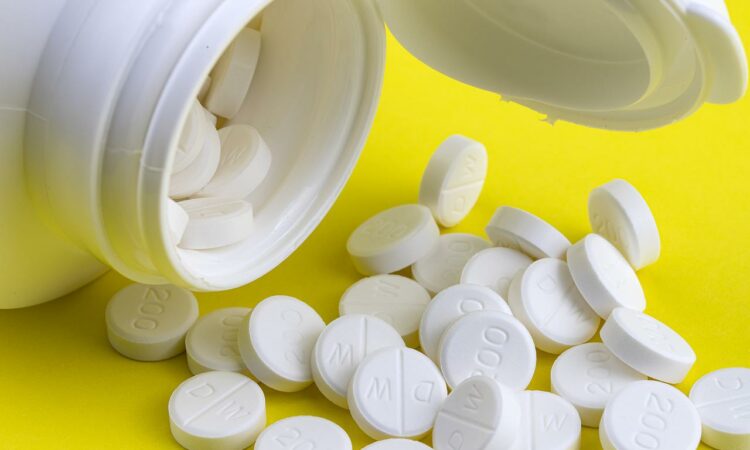Little Pill 2022-05
“Side effect” is a question every patient asks the pharmacist when a new medication is prescribed. Patients seek help for their illness will trust that their doctors for the medications prescribed; but there are situations where doctors prescribed medications for what appears to be no clear indications when patients have no complaints. Patients receive information sheets and documented side effects is more alarming than efficacy which trigger them to doubt, “why am I taking the medication when I have tolerable or no symptoms at all.” Hence, pharmacists always explain the proper ways to take the medicine and how to minimize side effects to ensure compliance. They also alert patients of major side effects and cautionary interaction with other medications or food.
Side effects occurrences can be temporary, or for an extended period of time; and the reactions can happen immediately or delayed. For the temporary side effects, our body can adjust within a brief period and cope with these effects slowly. Unpleasant effects can also be an expression of the effectiveness of the medicine. For example, medications that lower blood pressure or control irregular pulse would result in symptoms such as tiredness, dizziness, weakness etc. This drug-related reaction is secondary to lower blood pressure or regulated pulse which is the intended efficacy. These side effects will gradually disappear once the body get used to the normalized condition. Unfortunately, some patients are so used to the symptoms that they are not aware of their medical condition until seen by the family doctor with elevated blood pressure. Hence, they are reluctant to take the medications whether they experience the side effects or not. They do not realize that high blood pressure and arrhythmia could lead to severe consequences like heart diseases or strokes.
There was a case of a 40 plus year old man admitted to the hospital with heart attack. His doctor had advised him to take the anti-hypertensive medication, but he stopped using it because of its side effects, which in turn led to his heart attack. Stop taking the medication is not a solution to manage side effects. Some medications are only needed to be taken for a brief period of time when used to treat certain illnesses or when needed to ease symptoms. If patients would discuss with their doctors to better understand their medical conditions and signs of efficacy with side effects of the medications, side effects can be lessened with modifications. I work as a pharmacist in the hospital orthopedics unit. When patients are discharged after surgery to recover at home, they usually receive four to five prescribed medications, with at least two to four of them being pain killers. Some patients experience upset stomach, nausea, and decrease appetite after taking pain killers(analgesics), and as a result, they choose not to take analgesics and unable to follow proper rehabilitation exercise recommendation because of uncontrolled pain. Inactivity secondary to pain place them in substantial risk for developing blood clots and subsequent life-threatening conditions and re-admission to hospital have occurred for this reason.
Some patients choose to live with the side effects. They’d rather bear with the impact of side effects have on their daily lives than consulting their doctors or pharmacists. In fact, with adjustment or modification of the medications or ways to take the medication, both the medical conditions or symptoms can be dealt with, and side effects reduced at the same time.
Interactions between drugs or between drugs and food could also cause side effects. For example, cholesterol-lowering medications and some anti-hypertensive medications commonly interact with grapefruit (include Shatin pomelo). Grapefruit increases the intestinal absorption of these medications, leading to higher levels in a person’s body, thereby increase intensity or risk of major side effects. Increase absorption occurs even when grapefruit is not eaten together with the medicine simultaneously. When patients understand the reasons, they will follow the recommendation and avoid eating food that could raise the possibility of side effects.
Some medications interact with food when they are taken together. For example, when taking antibiotics with calcium or iron pills, they will mix in the stomach and lower the absorption of the antibiotics, thus reduce the effectiveness. Other than prescription medications and food, herbs interaction can lead to serious reactions as well. There was one case that a patient whose wound continued to bleed after surgery, and in-depth investigation still unable to determine the cause. Fortunately, they find her making tea from wolfberry and American ginseng to drink, which increased the blood thinner efficacy and caused post-surgical bleeding,
There are circumstances of difficulties with emotional ups and downs, and situations in life filled with sorrows and joys, which affect our emotions instantly or in the long run. Facing one’s emotions is like dealing with side effects. Some people choose to face and deal with their emotions positively. Some choose to deny and ignore them; others choose to live with it, leading to long-lasting negative impacts and possibly affecting those around them. We, human being, is incapable and weak in the face of emotional wounds. We have to acknowledge there has to be an Almighty Creator who loves the world when we examined the universe in its order. He is willing to heal us and give us peace and the strength to face whatever situations. A psalmist in the Bible expressed praise to God even in adversity:
“Therefore my heart is glad, and my tongue rejoices; my body also will rest secure,
because you will not abandon me to the realm of the dead, nor will you let your faithful one sees decay. You make known to me the path of life; you will fill me with joy in your presence, with eternal pleasures at your right hand.” Psalm 16:9-11

